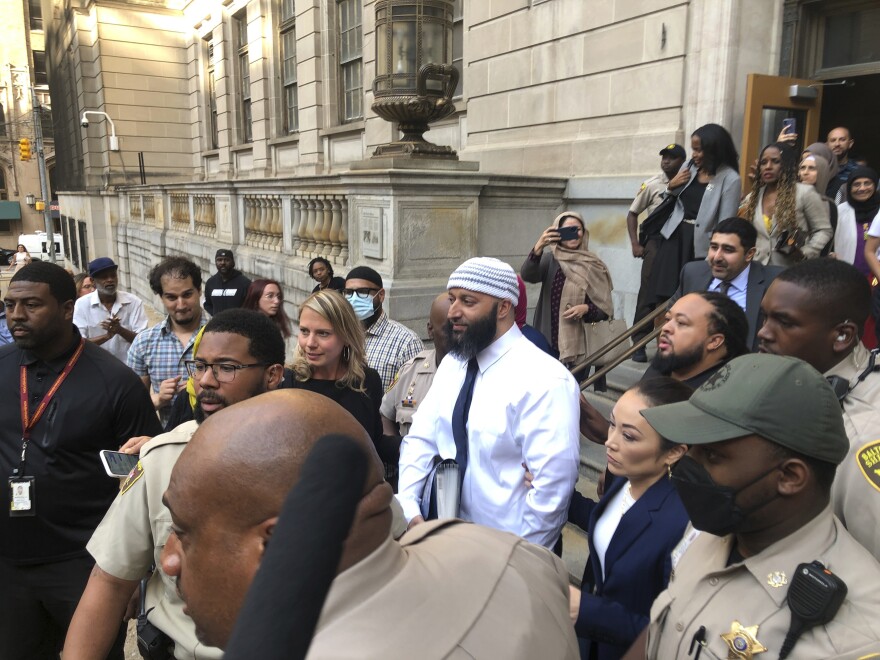After more than two decades behind bars, Adnan Syed was released from prison Monday afternoon when a Baltimore City Circuit Court judge vacated his murder conviction for the 1999 slaying of his ex-girlfriend Hae Min Lee. They were classmates at Woodlawn High School, Syed was 17 years old when Lee was found dead. Syed was serving a life sentence in prison after two trials.
Syed, now 41 years old and six feet tall with a beard, wore dark blue slacks, a white shirt and donned a kufi in court. He arrived for the court hearing wearing shackles and guarded by four police officers, he left the courthouse unshackled surrounded by his family and supporters.
Prior to the hearing, attorney Steve Kelly, who represents the Lee family requested a seven day extension for the hearing so that Lee’s brother Young, who lives out of state, could attend in person. Kelly’s request was denied and Young was able to attend the hearing by watching through Zoom.
Judge Melissa Phinn overturned his murder conviction after Syed’s attorney and Baltimore City State’s Attorneys office prosecutor Becky Feldman presented evidence that there are two alternate suspects in the case.
Phinn ruled that the new evidence violated the Brady Rule, which refers to a Supreme Court ruling that state prosecutors cannot withhold evidence that’s favorable for the defense if they ask for it in court.
“Remove the shackles from Mr. Syed,” Phinn said after her ruling. Supporters in the courtroom gallery burst into cheers.
Outside the courthouse, Baltimore City State’s Attorney Marilyn Mosby said that the motion to overturn his conviction happened after a year-long investigation into the case.
“Our reinvestigation revealed that the original prosecutors and the subsequent prosecutors in the Attorney General’s office failed to disclose relevant information about alternative suspects,” Mosby said during a press conference. “One of whom threatened to kill the victim and had motive to kill the victim and both of whom had a pattern of violence against women.”

Mosby said her office’s investigation found that the two suspects could have been involved individually or worked together in the slaying.
“Our investigation uncovered that one of the suspects threatened Ms. Lee that he would make her disappear. He would kill her. We also received information that provided motive for that same alternative suspect,” Mosby said.
But that doesn’t mean the city’s top prosecutor is asserting Syed is innocent, she said.
Syed must wear a GPS device for monitoring at home. Prosecutors have 30 days to decide whether to retry his case and are waiting on new DNA evidence.
The investigation fell under the office’s Sentencing Review Unit in which prosecutors review and modify excessive sentences for juveniles with life sentences in the adult prison population.
“To ensure racial equity in a state that disproportionately incarcerates more Black or Brown people than any other state in the unit,” Feldman said.
The Office of the Maryland Attorney General refuted the notion that its attorneys kept evidence from defense attorneys in a statement after the ruling.
“Among the other serious problems with the motion to vacate, the allegations related to Brady violations are incorrect,” said Brian Frosh, Maryland’s attorney general. “Neither State’s Attorney Mosby nor anyone from her office bothered to consult with either the Assistant State’s Attorney who prosecuted the case or with anyone in my office regarding these alleged violations. The file in this case was made available on several occasions to the defense.”





